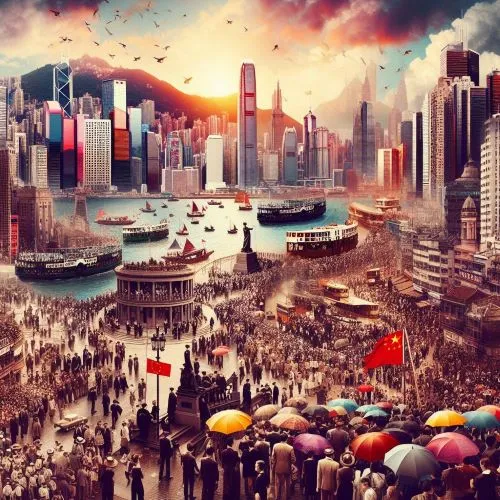
Japanese Occupation and Post-War Recovery The Japanese occupied Hong Kong during World War II from 1941 to 1945, leading to widespread hardship and disruption. After Japan's surrender, British control resumed, and Hong Kong underwent a remarkable economic recovery. This era was characterized by industrialization and the development of a manufacturing base. Transition to a Financial Center In the 1970s, as manufacturing moved to cheaper locations like mainland China, Hong Kong began to transform into a service-oriented economy. It developed into one of Asia’s premier financial centers, known for its free market policies and minimal government intervention. The Handover to China The significant event in Hong Kong's recent history is its return to Chinese sovereignty on July 1, 1997, under the principle of "one country, two systems". This arrangement promised to maintain Hong Kong's economic and political systems for 50 years after the handover. The Quest for Democracy and Recent Challenges In recent years, Hong Kong has seen massive pro-democracy protests, reflecting concerns over the perceived erosion of its autonomy and freedoms. The introduction of the National Security Law in 2020 has further intensified debates about the future of its democratic rights and freedoms. Conclusion Hong Kong's history is one of extraordinary transformation and resilience. From its colonial past to its current status as a financial powerhouse, it continues to be a significant player on the world stage. The future of Hong Kong will likely hinge on how it navigates its relationship with mainland China while striving to retain its unique identity and freedoms.